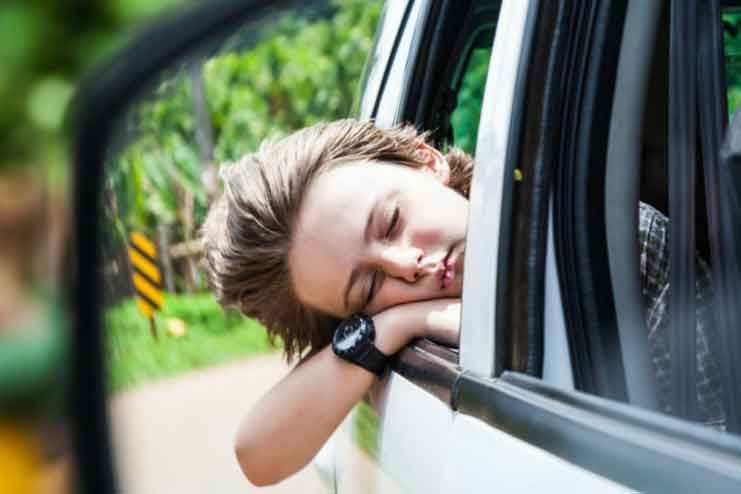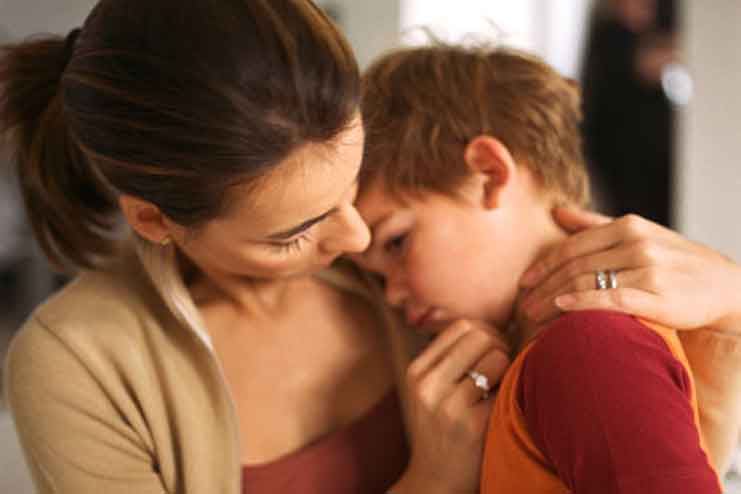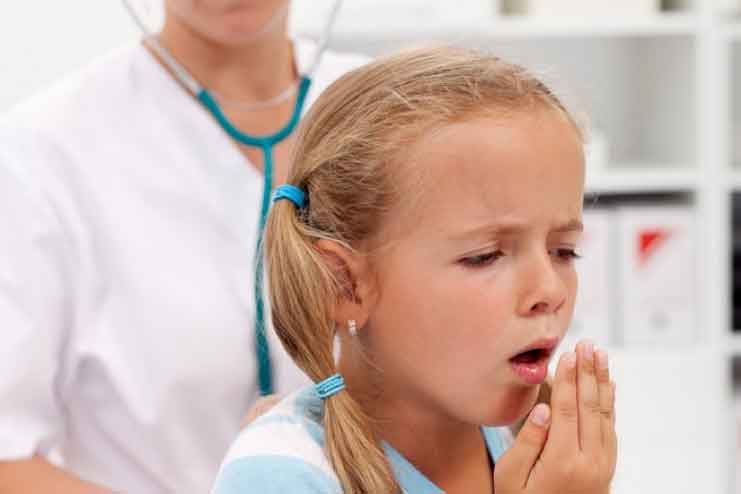Does your baby have sleepless nights or not eating properly when you are at altitudes? Then your child may be at the risk of altitude sickness which requires immediate attention and care.
Altitude sickness occurs when your baby could not get enough oxygen from the air or if your baby’s body can not adjust to the environment at high altitudes. Most cases of altitude sickness may be mild and some may lead to death.
This article discusses the types of high altitude sickness in babies. It presents the causes and the ways to treat altitude sickness in babies.
What Is Altitude Sickness In Babies?

Altitude sickness is a disorder caused due to the shortage of oxygen at high altitudes. It is also known as acute mountain sickness. Altitude sickness usually starts from the altitudes starting from 4800ft to 11,200 or more.
Types of Altitude Sickness in Babies:
There are three main types of altitude sickness:
1. Acute Altitude or Mountain Sickness (AMS):
It is the mildest form of altitude sickness caused by the rapid exposure to low amounts of oxygen at high elevations. This type of sickness usually occurs above 2500 meters, some might encounter at the lower altitudes. It is recommended to consider headache, nausea, shortness of breath, or vomiting as the signs of altitude sickness in babies at high altitudes.
2. High Altitude Pulmonary Edema:
It is a life threatening form of altitude sickness, with a high mortality rate in the absence of emergency treatment. It occurs in otherwise healthy people at the altitudes of above 2500 meters. Genetic factors may make the person prone to pulmonary edema. Symptoms include shortness of breath, cough, decreased exercise performance, chest tightness or congestion.
3. High Altitude Cerebral Edema (HACE):
It is the least common and severe, regarded as the extreme end of altitude sickness. It usually occurs after 2 days stay at the elevation of 4000 meters or less. Some may suffer from the symptoms the same as AMS such as headache, nausea, shortness of breath, vomiting before transitioning to HACE.
Causes of Altitude Sickness In Babies:
One of the main reasons for altitude sickness in a child is the insufficient amounts of oxygen at the altitudes compared to that at the ground. This makes the body exert much effort in order to get the oxygen it needs. Furthermore, any physical activity causing strain such as skiing or trekking can demand high amounts of oxygen, before their bodies have had time to adjust.
Symptoms of Altitude Sickness In Babies:

Children of all ages including babies are likely to be influenced by altitude sickness. The symptoms of altitude sickness in babies can occur immediately or after a few hours.
As the babies can not communicate their discomfort, you should notice their non-verbal signs. These are :
1. Mood Disorders, Ranging From Crankiness To Sudden Silence:
Altitudes cause changes in the brain chemicals- dopamine, serotonin resulting in the depressive symptoms thereby causing mood swings.
2. Loss of Appetite:
At the high altitudes, your body is likely to increase the levels of Leptin. Excess leptin levels make one feel heavy. But, the brain can’t feel obese. This situation is also regarded as brain starvation. This makes you eat less at high elevation. Food intake completely depends on the leptin levels.
3. Cough:
The inspiration for cold, dry air at high mountains makes one more susceptible to cough.
4. Difficulty In Breathing:
The air at high altitudes is cold, less dense and contains few oxygens. This makes you take a number of breaths in order to get the required oxygen, resulting in breathing difficulty.
5. Extreme Nausea:
The pressure of the air surrounding you drops down as you move to the altitudes resulting in the shortage of oxygen in the air. The number of oxygen molecules per breath decreases and the body needs 2-3 days time to adjust to the altitude environment. You may feel nausea when the body is not adjusted to the altitude.
6. Fatigue:
The need to take more breaths to meet the oxygen demands makes you feel tired.
7. Headache:
Less oxygen levels at higher altitudes are not enough to nourish all your tissues, resulting in a condition known as hypoxia leading to a headache.
8. Sudden Drowsiness:
Oxygen shortage at altitudes may make your child feel tired resulting in sudden drowsiness.
Babies living at the high elevations, above 8,000ft, are at the risk of sudden infant death syndrome.
How Long Will Altitude Sickness Last?
Most of the kids can recover from altitude sickness in 2-3 days if proper treatment is given.
Care to be Taken For the Babies With Altitude Sickness:

Following are the few tips to treat the Baby Altitude Sickness.
1. Keep your baby with the appropriate clothing
2. Keep your baby hydrated. Try to give little amount of breast milk or formula milk frequently, to find out if baby’s appetite is back to normal.
3. Give your baby the food rich in carbohydrates
4. In case of any severe symptoms, try to take your baby to an emergency room. In case of absence of any medical facilities, immediately descend to the lower altitudes and seek medical attention.If your child can not walk, carry them in a sitting position and provide oxygen as soon as possible.
5. If your child has difficulty in breathing or turns blue, take him/her to the emergency room. To confirm if he is suffering from altitude sickness, they will test oxygen levels in blood. If your child’s symptoms are severe, it is recommended to take blood tests, CT Scan, a chest X-ray or ECG.
Symptoms usually go away after 2-3 days of rest, fluids and light diet. Give the medicines as prescribed by your pediatrician for headaches. To avoid dizziness and headache, ask your child to take deep and fast breaths. Breathing from oxygen tank can make the situation better. But, usually unnecessary in case of mild symptoms.
How To Prevent Altitude Sickness in Babies:

Altitude sickness in babies can be prevented by following these precautions
1. Avoid Trips to Altitudes with your Baby:
Avoid going to high altitude places if your baby is 3 months or younger Because their lungs are not strong enough to handle the insufficient amounts of oxygen at altitudes.
If your baby is beyond 3 months of with no special health concerns, they may exhibit the tolerance the same as you have at higher altitudes.
2. Recent Health History of Your Baby:
Avoid traveling to high altitude places if your baby has any recent history of infections, fever, or respiratory problems.
3. Take Frequent Breaks while Travelling:
This tip will help in preventing the altitude sickness in babies. Instead of reaching the altitude at a time, Try to halt frequently, in most cases altitude sickness in babies is avoidable if the ascent is slow. Make sure to take rest for a day or for a few hours on your way up to the high.
4. Drive Slow:
Drive slow while crossing the hill and avoid sharp turns, this may help to protect your baby from nausea.
The feeling of nausea and vomiting when riding in a car or amusement park is known as Motion Sickness. Motion sickness occurs when the sensory receptors like inner ears, eyes, skin pressure receptors send conflicting messages to the central nervous system. For example, while driving in a car the inner ears move up, down, left and right thereby sending conflicting messages resulting in the motion sickness.
5. Keep Your Baby Hydrated:
Make your baby drink enough amounts of water, juices, breast milk or formula milk throughout the journey. At the higher levels, the body works harder making the respiration levels to raise. As a result of the high respiration rate body loses water faster than at sea level.
6. Aware of Symptoms:
Be aware of symptoms like unsteady walking, breathing difficulty, headache, fatigue, loss of appetite etc., and respond immediately to avoid any further complications.
7. Give your Kid Time to Rest:
Make your kid take rest for sometime after reaching your destination. Do not involve your kid into any sort of activity without giving rest.
8. Dress Well:
Choose the best outfit that keeps your baby warm
9. Consult Pediatrician:
Consult the pediatrician before planning a trip to high altitude. Carry on with your trip only if the doctor confirms that your baby’s health is fine to travel. Request the doctor top prescribe medicines at times of emergency.
When To Call A Doctor For Altitude Sickness in Babies:

Emergency medical assistance is required if your baby comes across the following situations:
- Your child walks unsteadily
- Severe headache
- Vomiting for more than 3 times
- Difficulty in breathing
- Your child has become very sick
Having a brief travel through the mountain passes is fine. But, destinations and staying overnight at mountain areas with the new born is not recommended unless you live or delivered at high elevations. This article has provided you a few tips and preventive measures to deal with altitude sickness in children.










































